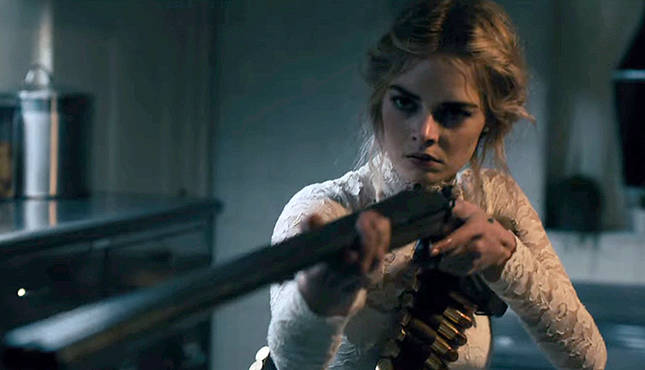The Piano is back for a third series and so is its parade of manipulative sob stories. This time, the hunt for the country’s saddest musician – sorry, best amateur pianist – begins in London’s Liverpool Street station, and although the show’s formula remains unchanged, with one forlorn hopeful at a time playing to milling crowds, there is a new face in the judges’ eyrie.Joining old hand Mika, and replacing nana-heartthrob Lang Lang, is the wildly overqualified Jon Batiste.
The American musician has forged a career by working with the likes of Beyoncé, Lana del Rey and Stevie Wonder. He has won five Grammys and an Oscar. I hate to think what must have happened for him to find himself in such dire straits to have to take a job on The Piano.

And while his energetic, irreverent presence proves something of a salve for the show’s prurient pomposity, he still doesn’t save it.#color-context-related-article-3027772 {--inews-color-primary: #b9244c;--inews-color-secondary: #f0f0f0;--inews-color-tertiary: #b9244c;} Read Next square TV REVIEWS The Piano is anodyne fluff that treats its viewers like idiotsRead MoreAs ever, The Piano trots out a host of talented, varied musicians – weepy-story-first. At just 12, Iranian English Anisa is clearly destined for greatness, but that is glossed over in the programme’s rush to communicate how her passion comes from a yearning to unite her disparate family.
if(window.adverts) { window.adverts.
addToArray({"pos": "inread-hb-ros-inews"}); }As for Keba, found as a baby on the street in Senegal before being adopted in France, he’s taught himself to play during a period of homelessness. Gilly, a Tarot card reader, uses music to overcome the hearing loss with which she was born. Septuagenarian John turns up in a sparkly jacket – “Come on, sequin daddy!” squeals Batiste – and plays some old-timey sing-along numbers, despite his battle with Parkinson’s.
But while there can be no question that The Piano trades in suffering – the currency that has historically kept tabloids and populists in business – it isn’t even upfront about it. When it comes to autodidact dinner lady Maria, who has taught herself to play between shifts at the music academy where she works, Mika loudly worried that her performance doesn’t stand up on its own merits. “If you don’t know the story and the context, it might not be as powerful,” he says – which rather begs the question, if someone’s story doesn’t matter why make such a big deal out of them? With all due respect to The Piano’s musicians, they have not been selected on merit alone – which is fine, TV hinges on narrative interest – but being coy about that makes it even more distasteful.
The Piano does have redeeming features – Claudia Winkleman is warm and effervescent as its host, and Batiste’s playful passion is genuinely refreshing. When Mika laughs at him for leaping out of his seat as another musician, 17-year-old Mia, started playing, he retorts: “I don’t know how y’all sit down and listen to music like this. She’s shot to the top of my list.
”if(window.adverts) { window.adverts.
addToArray({"pos": "mpu_mobile_l1"}); }if(window.adverts) { window.adverts.
addToArray({"pos": "mpu_tablet_l1"}); }In the third season of ‘The Piano’, the hunt for the country’s best amateur pianist begins in London’s Liverpool Street station (Photo: Channel 4 / Nic Serpell RandEven amid my grouchiness, I have to admit he is right. While it doesn’t entirely escape the show’s identity-drive, the way Mia’s story is presented is probably the least reductive. “[The song] reflects so many of the wonderful and beautiful things that people from across the African diaspora have been a part of,” she says, of “Troubled Water” by Margaret Bonds, who has been a precious discovery for Mia given the dearth of Black female role models in classical music.
Certainly, her rendition is special enough to translate through the screen.Ultimately, Mia and Anisa are chosen to play at the concert at the end of the series – which is nice. But no matter how well the musicians perform, or how valiantly Batiste and Winkleman twinkle, there is rot in The Piano’s foundations.
Burn it to the ground, I say, and send Batiste and all the performers off to a studio to make some real music. ‘The Piano’ continues next Sunday at 9pm on Channel 4.
Entertainment

The Piano is manipulative dross

Even a new host can't save the show from its embarrassing parade of sob stories















